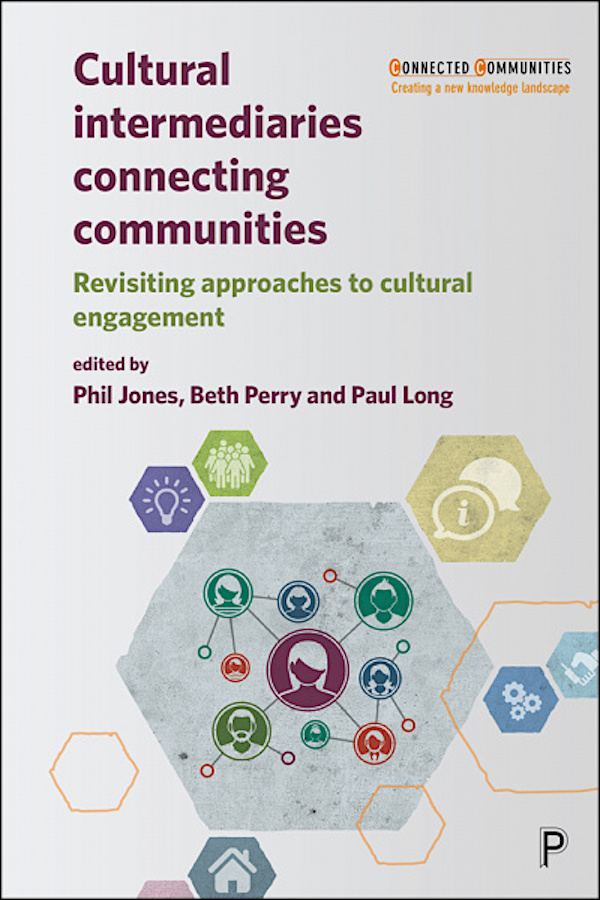Cultural intermediaries connecting communities: Revisiting approaches to cultural engagement

By Phil Jones, Beth Perry, Paul Long
About the book
The words ‘communities’ and ‘culture’ are some of the most contested in the English language. When the UK’s Arts and Humanities Research Council launched its Connected Communities funding programme in 2010, it provoked a great deal of debate among the academics and practitioners involved about precisely what these ambiguous concepts underpinning the programme meant in practice. This book, based on research funded by the Connected Communities programme, emerges from a key theme within these initial debates, which raised questions about the ways in which ideas of culture and creativity can be positioned as mitigating social exclusion and multiple deprivation.
Underpinning this book is a need to problematize a crude assumption that people living in poverty can have their lives enriched by engaging with cultural activity of different kinds. The ambiguous meaning of culture in this context is one of the key problems with the simple formulation that ‘culture is good for you’, and the assumption that there is an absence in the lives of those in need of its benefits.